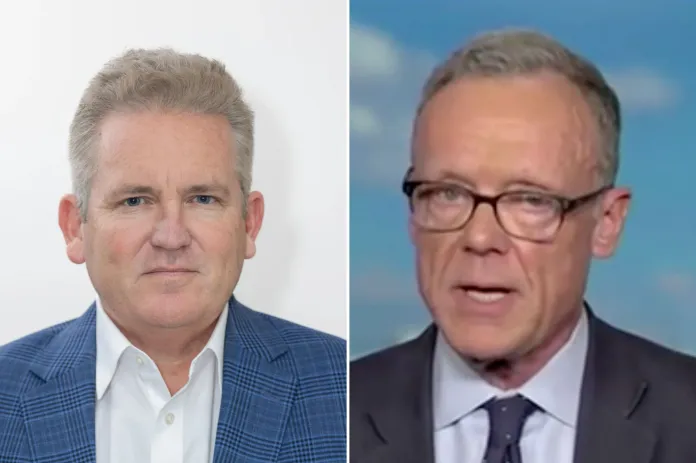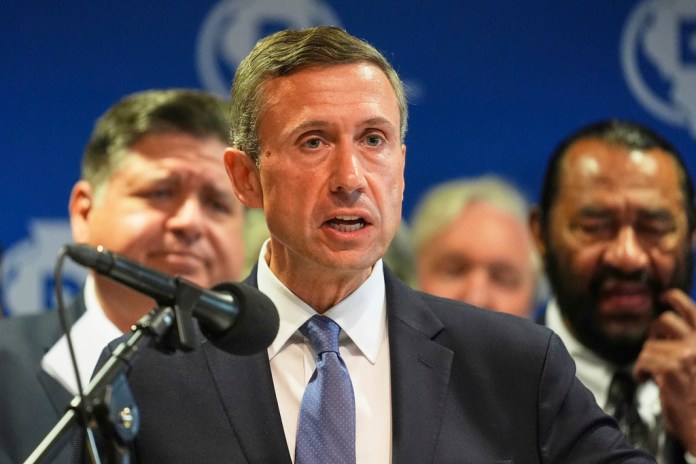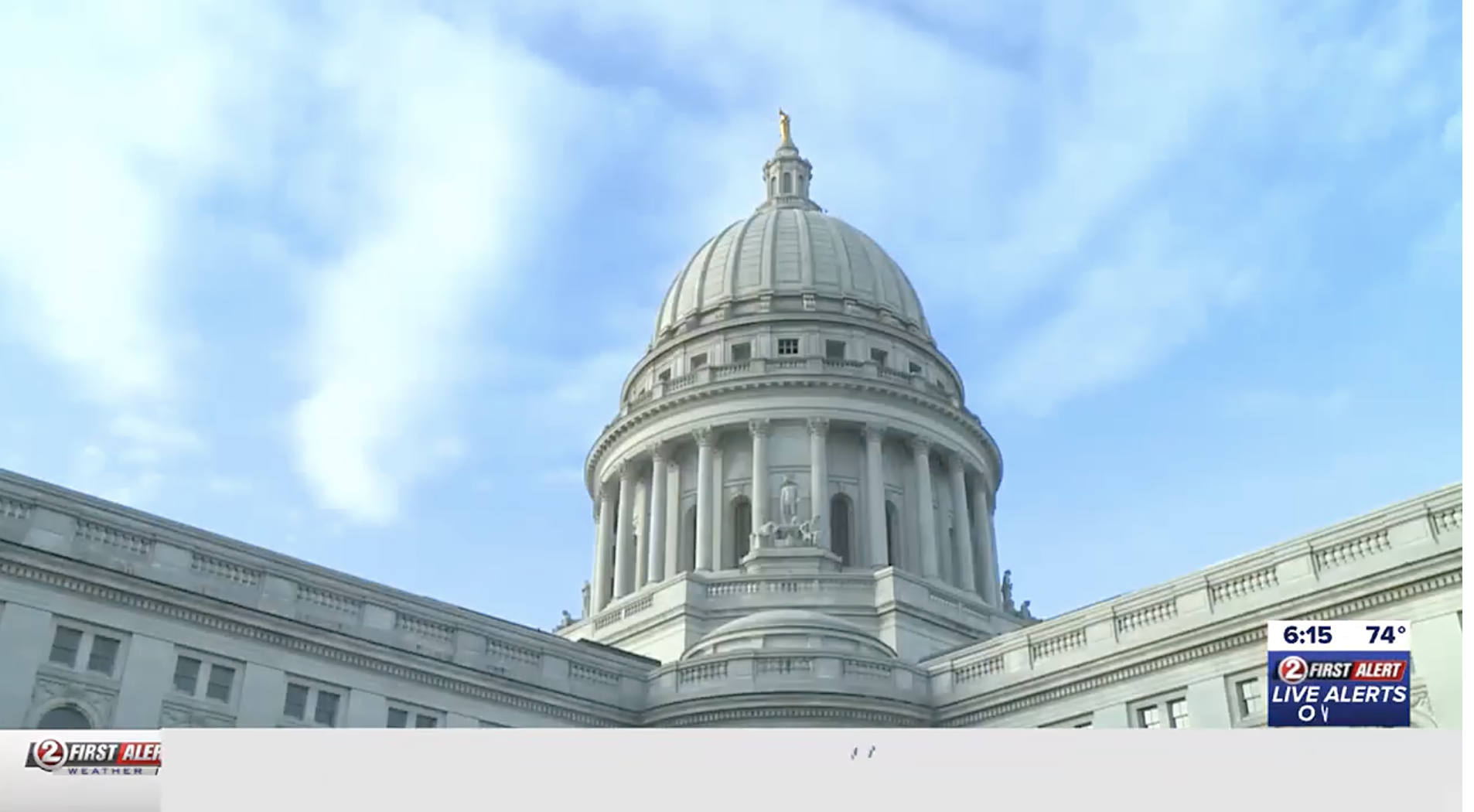Nathan Wade testifies he did ‘nothing to compromise’ Trump case – Washington Examiner
Nathan Wade, a special prosecutor involved in the election interference case against former President Donald Trump in Georgia, testified before Congress, asserting that his actions in the case were not politically motivated and that he did not compromise its integrity. This testimony was part of a closed-door deposition with the House Judiciary Committee and followed months of controversy concerning the conditions of his appearance, especially after his resignation in March due to revelations about his romantic relationship with Fulton County District Attorney Fani Willis.
Wade’s statements during the deposition reiterated his claims of transparency and integrity in his work. However, it remains unclear how cooperative he was during the questioning. His attorney, Andrew Evans, provided the opening statement to the media but did not clarify Wade’s level of cooperation with the committee. Alongside Evans, former Georgia Governor Roy Barnes represented Willis during the deposition.
The context of Wade’s testimony comes amid ongoing investigations by Chairman Jim Jordan into Willis’s prosecution of Trump and the financial complications arising from Wade’s billing practices while romantically linked to Willis. Jordan’s investigation has gained traction, particularly after Trump and several co-defendants raised concerns about the legality of their prosecution linked to the relationship between Wade and Willis. The committee is expected to release the deposition transcript soon.
Nathan Wade testifies he did ‘nothing to compromise’ Trump case
Nathan Wade told Congress on Tuesday during a long-awaited closed-door deposition in Washington, D.C., that his work as special prosecutor on the election interference case against former President Donald Trump in Georgia was aboveboard.
Wade told the House Judiciary Committee the Trump case was “not politically motivated” and that he did “nothing to compromise the integrity” of it, remarks that came after Wade resigned from the case in March following revelations of his romantic involvement with Fulton County District Attorney Fani Willis.
Wade’s comments, which he has made before, were part of his opening statement to the committee; however, Wade also underwent hours of questioning from the committee, and whether he cooperated and answered lawmakers’ questions remains unknown.
His attorney Andrew Evans, who was with him for the deposition, provided Wade’s opening statement to the Washington Examiner but did not address questions about Wade’s cooperation level. A committee spokesperson declined to answer questions about the deposition but said the committee plans to release a transcript of it as soon as possible.
Wade’s deposition was preceded by months of controversy regarding the terms of his appearance. The committee also said it recently experienced unusual difficulties accessing Wade to serve him a subpoena for it. In his opening statement, Wade denied that he intended to avoid service and claimed he did not know about the subpoena until he saw it in news reports.
Along with Evans, Roy Barnes, a former Democratic governor of Georgia, appeared at the deposition on behalf of Willis.
Barnes’s presence came after he had insisted to House Judiciary Committee Chairman Jim Jordan (R-OH) in one letter that Willis have legal representation present at Wade’s deposition, leading Wade to indefinitely postpone his scheduled appearance in September and Jordan to issue the subpoena to Wade in the face of Barnes’s demand.
Barnes told Jordan in a second letter to “calm down” and take an “anger management course.”
Wade’s deposition came as part of Jordan’s broader, yearlong investigation into Willis’s prosecution of Trump. Jordan began looking into Wade in particular after the Georgia lawyer made nearly $700,000 billing Fulton County for his services while in a relationship with Willis for at least part of the time he worked for her. Willis has argued that she gained nothing financially from the relationship and that she split costs with Wade when they would spend time together.
Trump and several of his co-defendants, who are facing racketeering charges brought by Willis related to the 2020 election, alleged this year that the pair’s relationship presented a conflict of interest, and a judge partially agreed. The judge’s decision led Wade to resign and Trump to elevate his argument to the Georgia Court of Appeals in hopes of getting Willis kicked off the case. Trump’s appeal remains pending.
Jordan, a staunch Trump ally, planned to question Wade about Willis’s office’s use of federal grant money and any correspondence Wade had with the Biden administration or the defunct Jan. 6 committee.
Willis, writing to Wade in her “official capacity” days before his deposition, warned him that he had confidentiality obligations related to Trump’s case, which remains open while in the appeals process. Willis said she expected Wade to decline to answer questions from the committee related to the case.
“It is incumbent upon you, and your counsel, to guard against the unauthorized disclosure of confidential information by invoking all applicable legal protections and privileges [during the deposition],” Willis wrote.
" Conservative News Daily does not always share or support the views and opinions expressed here; they are just those of the writer."




